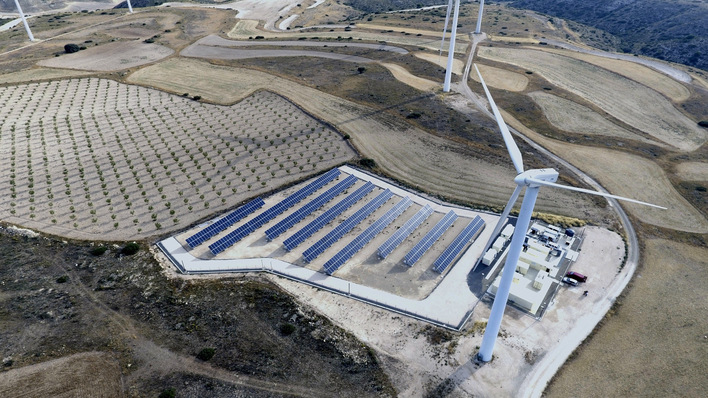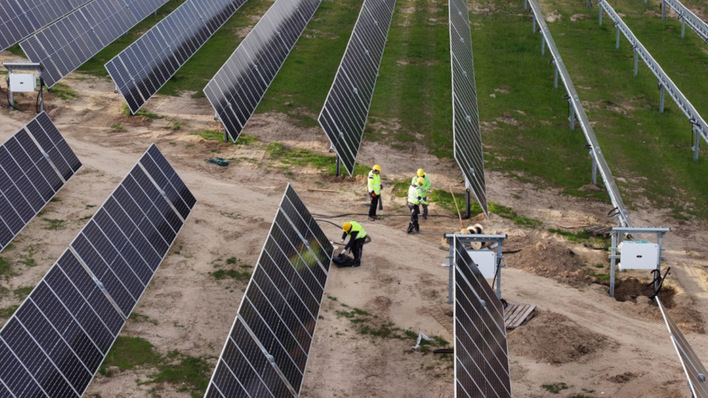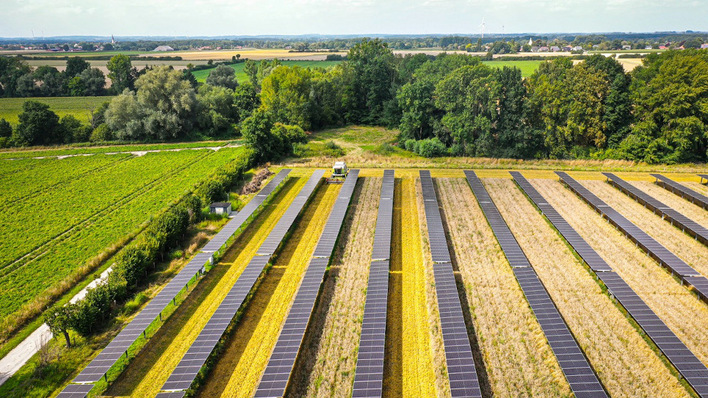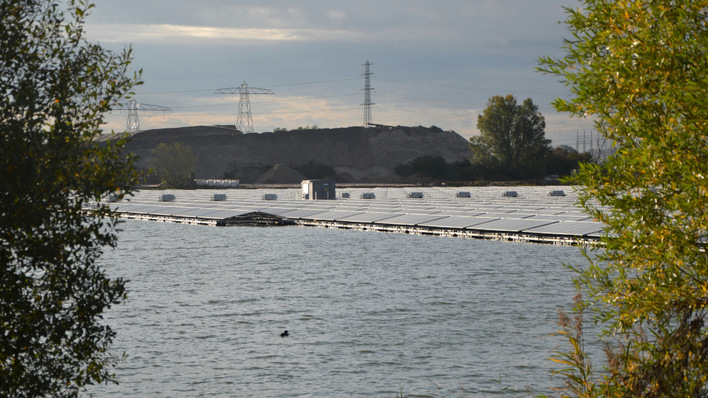We spoke to Björn Broda, Head of Corporate Strategy, Communications & Public Affairs within the juwi Group concerning the competitive environment in the wind and solar sector and the effects of the decarbonization announcements on project developers, energy suppliers and financial investors.
Mr. Broda, why are oil companies, of all the unlikely organizations, investing in renewable energies?
Primarily, this is certainly the result of the public pressure to which Shell and the others are exposed. Rightly, the oil companies are expected to make an appropriate contribution to achieving the agreed Paris climate goals. After all, oil companies are among the largest emitters of greenhouse gases, a fact that is confirmed by a study recently published by the US Climate Accountability Institute. According to the scientists’ analysis, the five oil groups ExxonMobil, Chevron, BP, Shell and Total, have accounted for more than ten percent of global CO2 emissions since 1965. In addition, major funds and institutional investors such as the Norwegian sovereign wealth fund, Blackrock or the Church of England increasingly require the oil sector to adopt a more sustainable business model. Even if the world beyond power generation will remain dependent on hydrocarbons for longer than it had been hoped, concerns about the risk of stranded investments are growing. This refers to long-term investments which will no longer be viable because peak demand has already been passed and margins are facing growing pressure as the oil price falls.
And the oil companies themselves…?
… have in some cases spent large advertising budgets on playing down climate change and defending their established business models for many years. The British think tank InfluenceMap estimates that the Big Five I have already mentioned have invested billions on lobbying activities of this type since the Paris agreement in 2015. Nevertheless, this has been to no avail: following the triumph of renewable energies in power generation, they are now faced by the impending loss of their market shares thanks to alternative drive systems in the transport sector and bans on plastic in the petrochemical sector. It is no accident that oil shares have been among the underperformers over the past few years. This is why the oil industry is now recognizing that customers’ wishes are changing and that especially wind and solar power generation has become competitive. They want to participate in the steady growth of renewable energies, to avoid the loss of their ’social license to operate’ and to diversify their business model as there are considerable uncertainties concerning future technological developments. Perhaps the erosion of the business model for conventional power generation has served as a cautionary example.
Is that the way all the oil majors see it?
In the past, the Big Five shared the same view on energy markets for many years. Now, we can see a clear two-way split. On the one hand, we have the major integrated groups of European origin such as Total, Shell, BP, or the Norwegian Equinor, who have initiated a transition from being pure oil and gas players to becoming broader-based energy companies. This can be seen from the ambitious strategic target expressed by Shell to become the world’s largest power supplier by 2030. Albeit to a more modest extent, even the publicity-shy major oil traders such as Trafigura or Vitol are starting to invest in wind and solar plants.
And who does take an opposite view?
On the other hand, the US oil industry, exemplified by ExxonMobil or Chevron, has access to significantly higher reserves and at least to date has continued to focus on its traditional core business. The shale oil boom has given a boost to these competitors in the short term but will also make them vulnerable in the long term. The pressure by US politicians to develop additional export markets in Europe is extremely clear. Otherwise, these companies are threatened by the fate of the tobacco industry, which will mean a long, managed decline – although they will still operate profitably and at a high level.
What is the main emphasis on investments by Total, Shell etc.?
Apart from the shift from oil to gas, investments in CO2 capture and storage or biofuels, the main focus is now clearly on the power sector. Investments are spread to varying extents along the whole value chain with the exception of regulated grid business. Companies enter the sector almost entirely via mergers and acquisitions and not organically, frequently via internal venture departments and also in the form of minority holdings. Bloomberg recorded more than 70 transactions of the oil majors in 2019 alone.
Can you give us some specific examples of such M&A transactions?
Total, for example is extremely active in the solar sector, with the participation in SunPower, a 30 percent stake in international project developer IPP Total Eren and a 50 percent holding in the Indian solar activities of theconglomerate Adani. The company is currently entering the Spanish market via pipeline deals for two gigawatts with the project developers Powertis and Solarbay. Shell is also on a shopping trip, with a 44-percent participation in the US solar project developer Silicon Ranch, the acquisition of First Utility in the UK, ERM Power in Australia and the Bavarian battery start-up sonnen as well as a minority stake of 49 percent in the Australian developer Esco Pacific. At BP, the main activities have been the participation in LightsourceBP, which has now been boosted to 50 percent, and the acquisition of the charging infrastructure supplier Chargemaster. The list could be continued almost indefinitely. As a general point, it seems that Big Oil is still looking for the right business model but that these activities are generating significant competition for the major international utilities like Iberdrola, Enel, Engie or RWE. A suitable energy supplier could soon become a candidate for acquisition.
Should this attack on the utilities be taken seriously?
At least in the target systems and remuneration schemes, decarbonization has already become established. The announcement by Repsol of Spain that the company wanted to become carbon-neutral by 2050 attracted some attention. The new CEO of BP, Bernard Looney, has also made such a statement; more specific strategies and measures are to be announced in September. At the moment, the share of renewable energies in total capex spending of the European oil majors is only between five and a maximum of ten percent. Even this figure is significantly above industry average. As regards assets, the main focus of investments is on capital-intensive scalable activities in the offshore wind sector or very large onshore wind and solar farms, in some cases located in high-risk emerging markets. The portfolios of these late entrants to the market still lag far behind the major utilities.
Next week, in Part 2 of our interview with Björn Broda he will outline how he sees the future and what implications this state of affairs will have on project development in renewables.
Björn Broda:
Björn Broda works on strategic questions, new business models and international energy markets. Following various management positions in finance, strategy and M&A in the energy industry, he joined juwi in 2016. Since 2018, he has been Head of Corporate Strategy, Communications & Public Affairs. (mfo)








